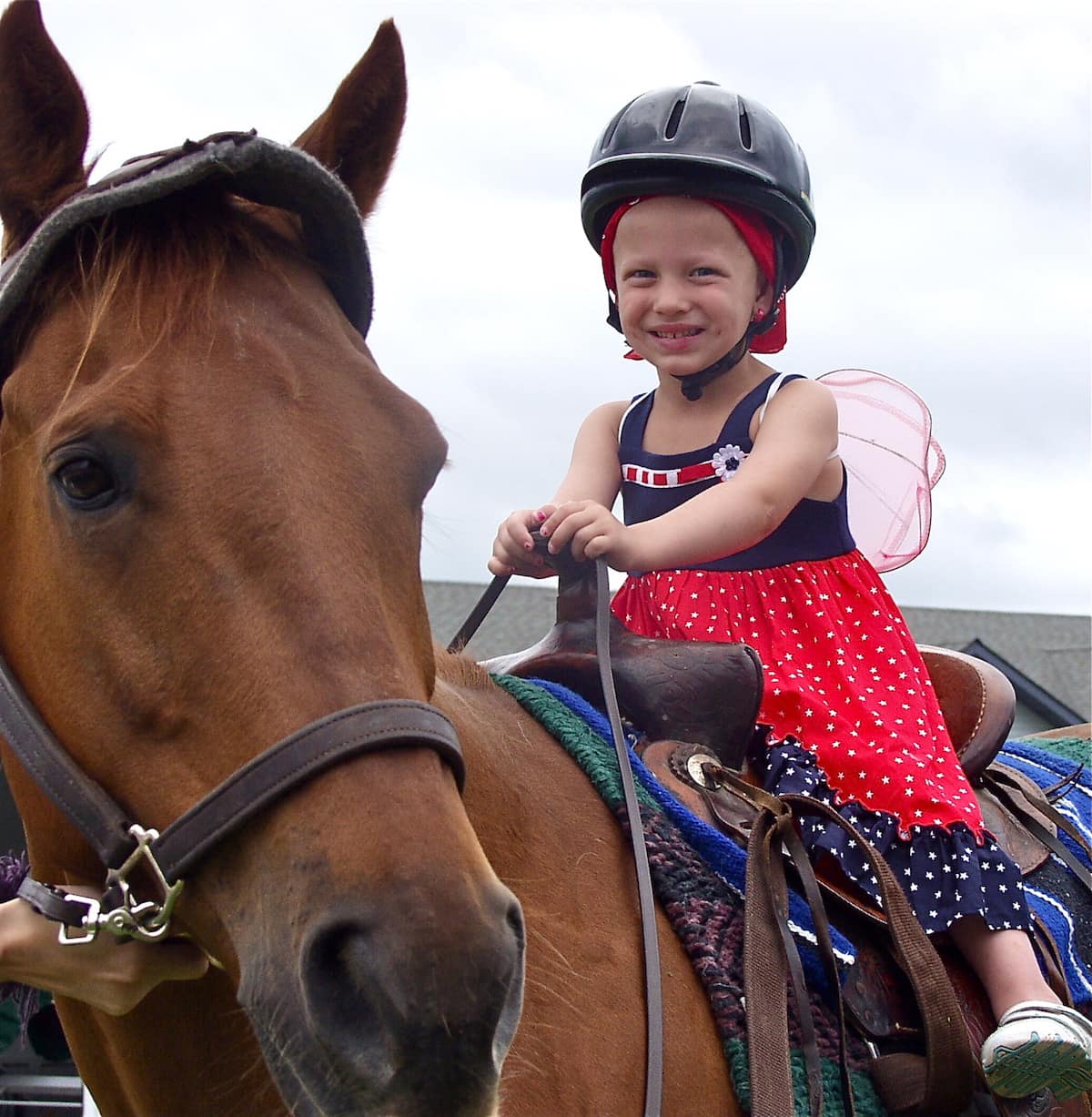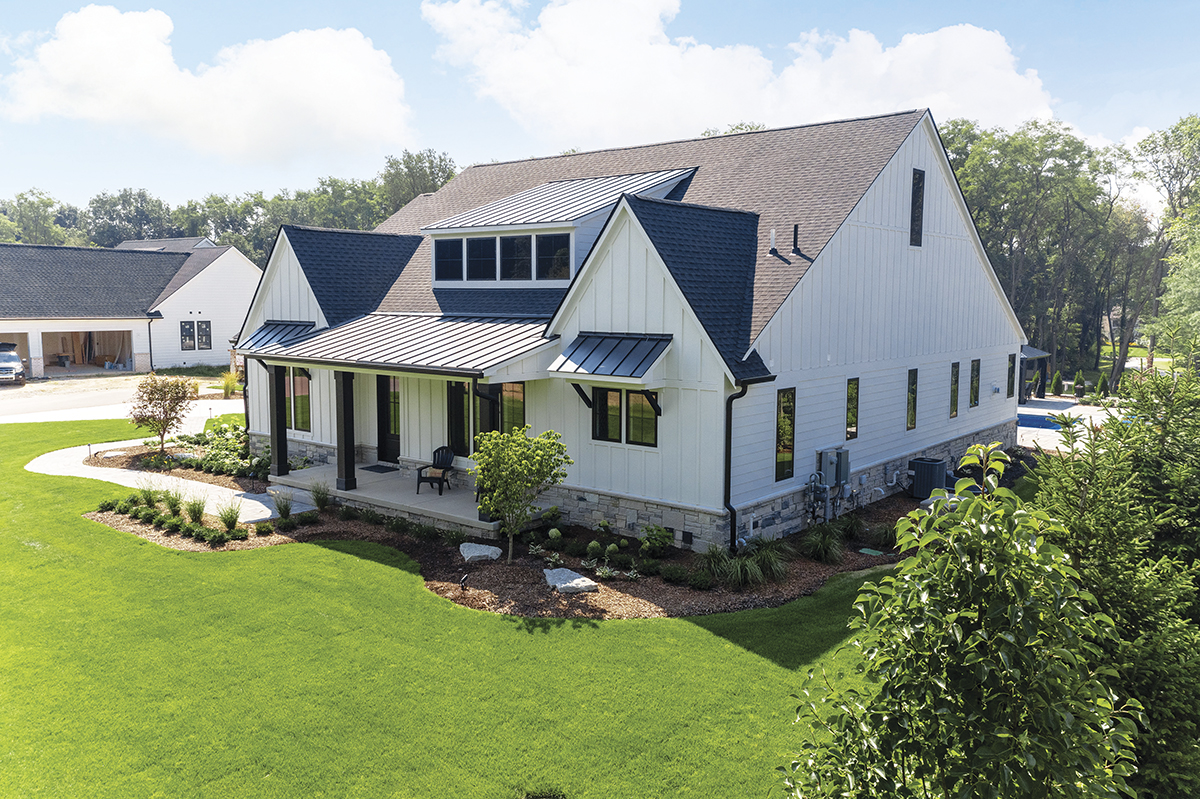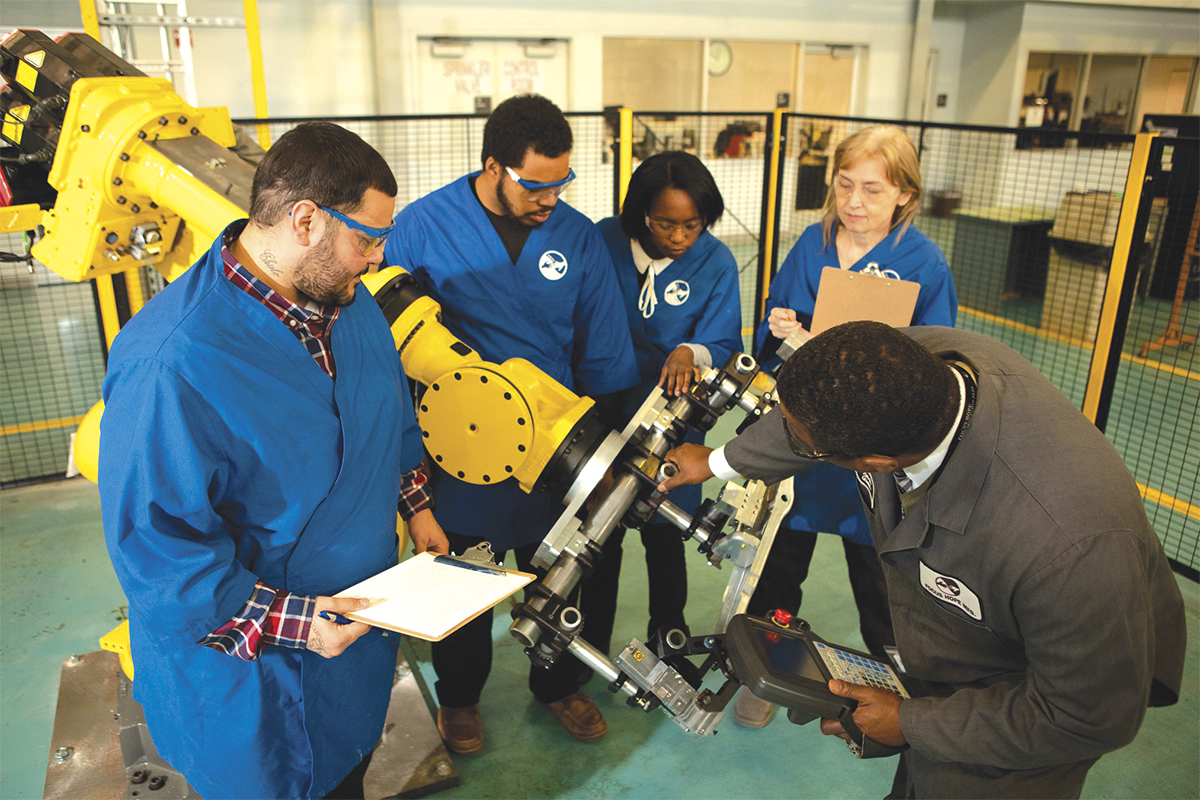WRITER | NICOLETTE CHAMBERY
PHOTOS | CAMP CASEY
While studying journalism at Michigan State University, Molly Reeser started working part-time on a horse farm to earn some extra money. There was no way to know that she would meet a little girl named Casey Foote who would alter the course of her life both professionally and personally, positioning Reeser to impact the lives of many more in the years to follow.
When Reeser reflects on her first impression of Foote, she describes her as someone who made her presence known as a vivacious ten-year-old. For Reeser, it was also eye-opening. She had never met a child so young who’d had so many surgeries and chemotherapy treatments.
“It was weird for me to digest because I had never really experienced kids who had cancer. I had always thought of cancer as something that affects older people.”
Reeser noted that it was her own and Foote’s shared love for animals that contributed to their bond during their year-and-a-half friendship. Reeser recounts one of her favorite memories of Foote, who would collect birds that had fallen from the barn rafters in an attempt to save them from imminent death, birds that Reeser would take home and try to nurse back to health.
After Foote died, it was clear how much her zest for life and care for others impacted the community working at the barn. In response to their grief, the women at the barn resolved to organize a way to commemorate Foote’s life. They considered options such as planting a tree, but Reeser suspected Foote would find that boring if she were still alive, that she would want other kids who battled the same sickness to experience what she was able to enjoy during the last two years of her life.
Reeser approached the owners of the farm to ask if she could use it for one day and invite other children from the hospital to visit, to enjoy activities they weren’t able to from the confines of their rooms. With consent from the farm owners, Reeser went about planning what she hoped to be a memorable day for the children and their families alike, charging $200 on her “emergency credit card” for pizza and crafts.
The day was an incredible success, and Reeser felt a sense of closure by having honored Foote’s life in a memorable way. About a week later, she received a letter from a four-year-old boy who was going through treatment for brain cancer. In the letter, he thanked Reeser for what he referred to as “the best day of my life.” After reading this, she wondered how many others could benefit from a trip to the farm.
Reeser convinced the barn owners to lend her space once a month until she graduated. As time went on and she saw how much joy the program brought to children, she decided to start waitressing with the goal of turning the farm concept into a full-time program, founding Camp Casey in 2004.
Fast-forward to today, and few would be surprised by the mounting success of the organization’s development. Perhaps even more impressive is how organically and almost serendipitously these developments have occurred.
For instance, the first Horsey House Call that Reeser made with an equine therapist to a sick child’s home, caused a passerby to stop and inquire as to what was transpiring. She explained that the Horsey House Call, one of the organization’s signature programs, was there to surprise the sick child with a visit from Camp Casey – involving a horse, an arts-and-crafts project, and food – to provide an escape of sorts for the child and their family.
Intrigued, the passer-by left his business card with the intent to schedule a meeting with Reeser. Over breakfast a few months later, he asked how much Reeser anticipated Horsey House Calls to cost the organization if they continued it. After some quick calculations, Reeser provided the number that came to her: $50,000. They parted ways after what seemed to be a mostly informational transaction, but a few months later, on Foote’s birthday, an anonymous check arrived in the mail for $50,000.
Camp Casey’s second program is called Cowboy Campouts, a scholarship program for 20 families to go on vacation, or more specifically camping at a horse-themed resort, which they affectionately refer to as “glamping” because of the amenities provided. Families are given their own cabins complete with access to hot tubs, TVs, trail rides, and additional activities that unite them with other families going through the same thing they are.
The third and final program of Camp Casey is called Outlaw Outings. These are one-day recreational outings designed to extend the relationships established among families who have participated in events throughout the year.
After speaking with Reeser about the success of the program and the ways she and her team would like it to expand, I was most impressed with how little credit Reeser gives herself for making the program what it is today. During our conversation, she reminded me that it wasn’t her original intent to pursue a vocation in the nonprofit world. Nevertheless, Reeser gave up her aspirations of being a journalist and created a life-changing program serving over 1,200 people in Michigan and mobilizing over 200 volunteers who believe in Camp Casey’s mission.
“I’m not a very spiritual person,” Reeser says, “but there is no doubt that Casey guides this work and has helped make it what it is today. I feel indebted to Casey for the beautiful life I have because of this work.”
Camp Casey 333 W. 7th Street, #230, Royal Oak Michigan 48067 l (877) 388-8315 / Camp-Casey.org








